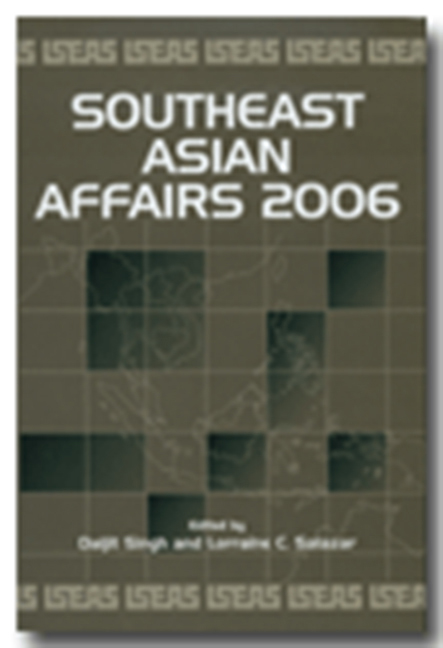Book contents
Myanmar: Challenges Galore but Opposition Failed to Score
from Myanmar
Published online by Cambridge University Press: 21 October 2015
Summary
The main events that characterized Myanmar's political scene in 2005 were the military government's highlighting of its National Convention (NC) as a showcase for political progress and the crackdown on political activists from the Shan ethnic group. The legitimacy of the NC established by the State Law and Order Restoration Council (SLORC, the junta from 1988 to 1997) and endorsed by the State Peace and Development Council (SPDC) was still not accepted by the political opposition and the US-led Western governments while the crackdown attracted a fresh round of condemnations by the advocates of human rights, political opposition from within and without the country and Western governments. In fact, the issue of the apparent lack of progress in instituting political reforms towards democratic rule had become the bone of contention in ASEAN's relations with its dialogue partners and even within ASEAN itself and the year saw a significant increase in attempts by the international community to press for changes in the regime's conduct to conform with Western norms of human rights and democracy.
The issues of democratic reforms and the continued detention of opposition icon Daw Aung San Suu Kyi as well as allegations of forced labour, ill-treatment of political prisoners, internal displacement, and religious persecution that dogged the regime since it came to power were highlighted time and again by the regime's critics and detractors who unleashed a torrent of complaints, condemnations and warnings throughout the year, culminating in calls for a move to refer Myanmar to the United Nations Security Council (UNSC) as threat to peace and security in the region.
Meanwhile, on the economic front, the government continued its claim of double-digit GDP (gross domestic product) growth as in the previous few years, despite cost-push inflationary pressures and further deterioration in the free market exchange rate of the local currency (kyat, or K) to the US dollar. The government's claim of a high economic growth rate was disputed by outside observers such as the Economist Intelligence Unit and the Asian Development Bank.
- Type
- Chapter
- Information
- Southeast Asian Affairs 2006 , pp. 183 - 207Publisher: ISEAS–Yusof Ishak InstitutePrint publication year: 2006



